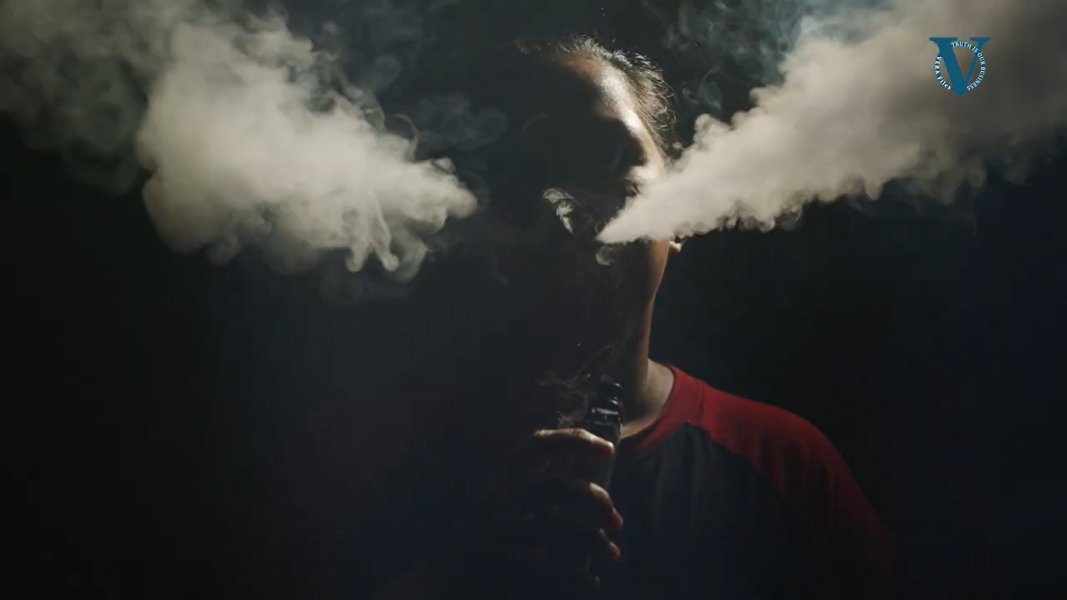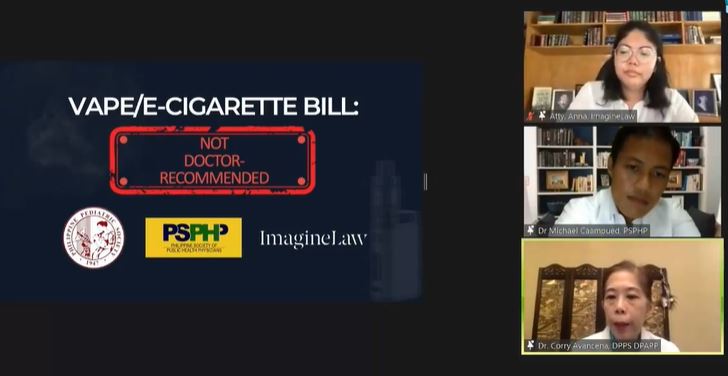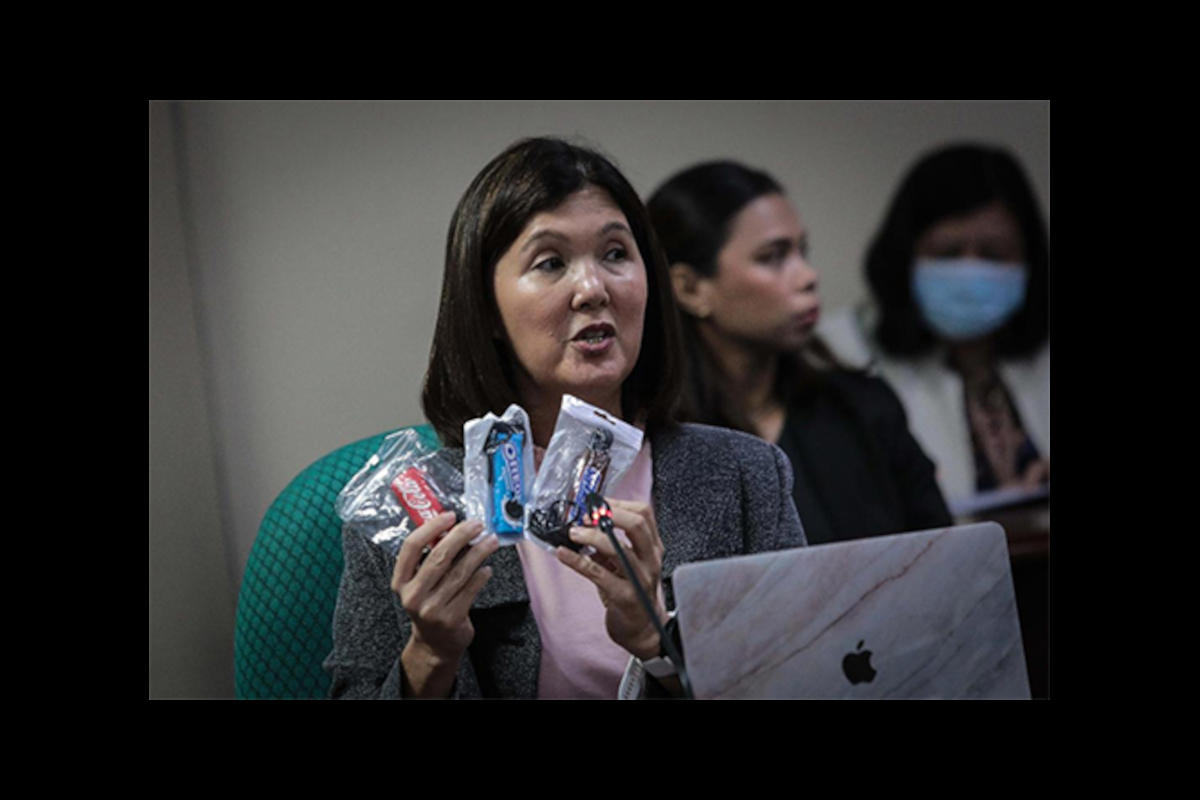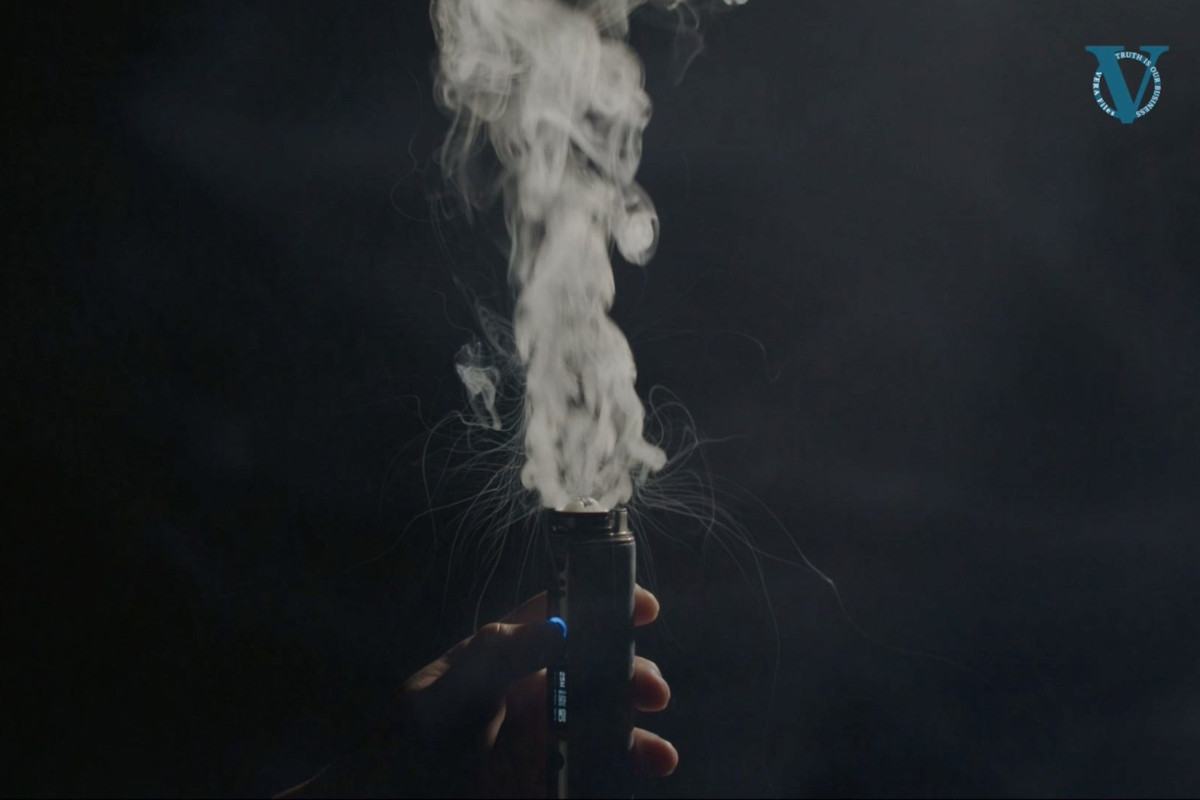Josh began smoking cigarettes at the age of 16. Initially, he got into it as a way to bond with friends who smoke. Eventually, it became the means to help him deal with relationship problems.
“At first, it was like my friends and I were just having fun until it seemed like that was my escape whenever I had problems with my family or girlfriend,” says Josh.
Mico started smoking when he was 17. Not long after, he tried to quit the habit because he was getting sick frequently.
Josh, now 20, and Mico, 19, were determined to stop smoking but they found it difficult to do so. They turned to the internet and found what they thought would be a good substitute for cigarettes.
“I watched videos on YouTube on what can be used after quitting smoking. A lot of people say ‘try vaping,’ so I did,” says Mico, who has joined an online community of smokers and vapers wanting to quit the habit.
He and Josh, both residents of Quezon City (QC), were enticed by new products being promoted by the tobacco industry as less harmful – electronic nicotine delivery systems or electronic non-nicotine delivery systems (ENDS/ENNDS) or vapes/e-cigarettes and heated tobacco products (HTPs).
In Metro Manila, a number of local government units (LGUs) such as QC and Pasig City enacted their own ordinances regulating the use, sale, manufacturing and distribution of vape products.
Both LGUs passed their ordinances in 2018 and 2019, respectively, allowing persons who are at least 18 years old to buy and use the products in the belief they are less harmful than traditional cigarettes.
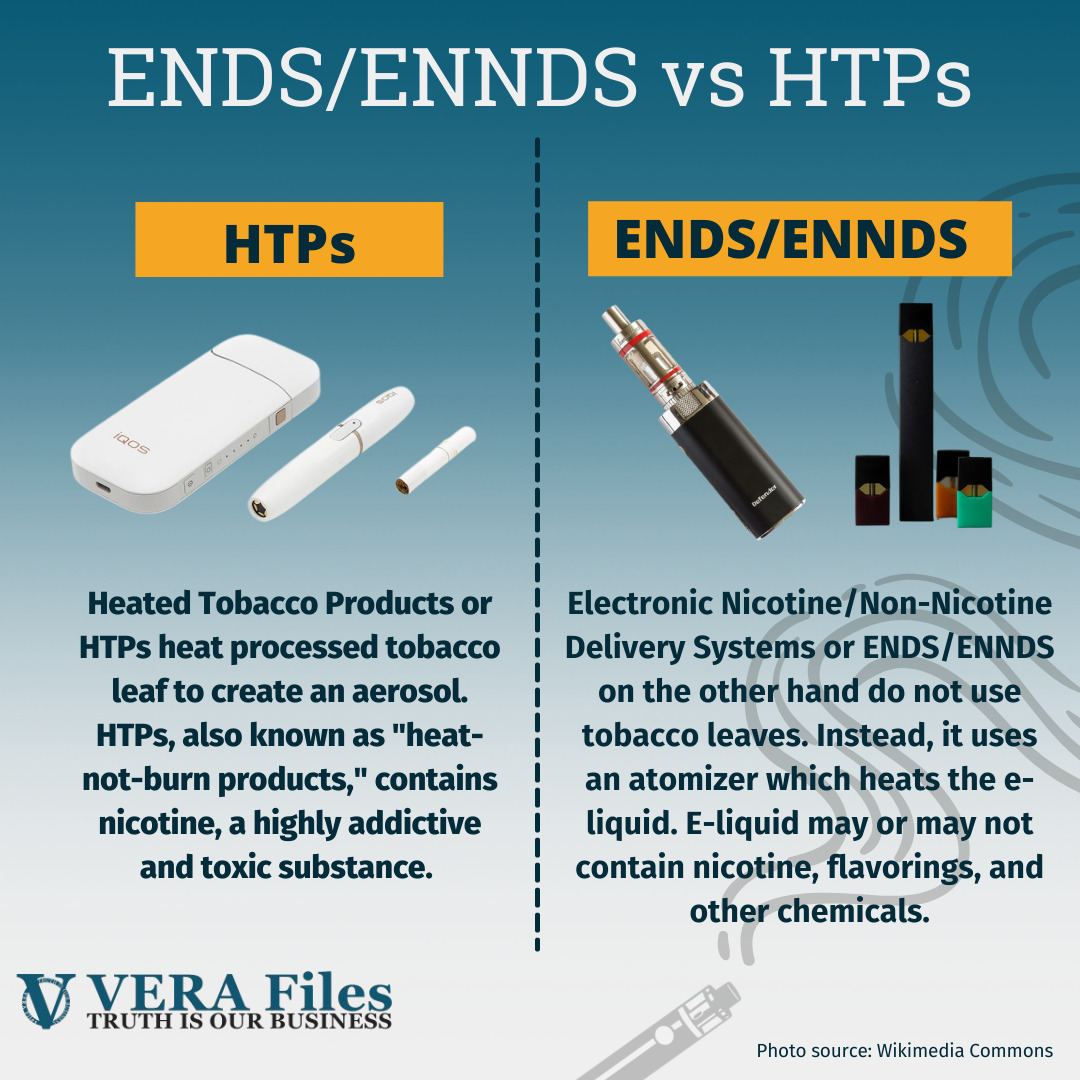
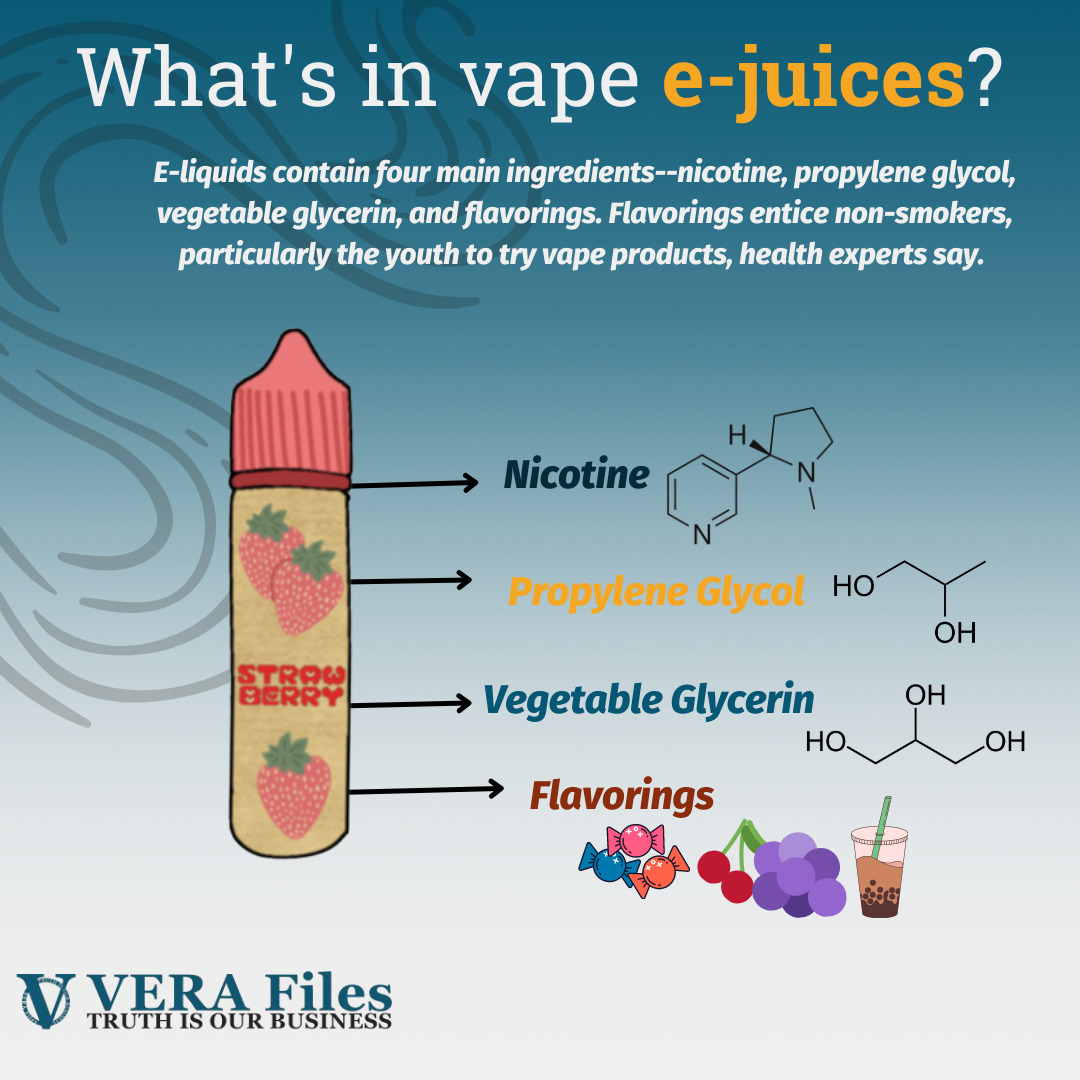
These so-called novel tobacco products mimic the effects of traditional smoking without burning tobacco leaves and are being offered by the industry as alternatives to those who want to quit smoking.
“We are developing breakthrough products that can satisfy their preferences and could one day replace cigarettes,” Philip Morris International (PMI) says on its website.
“By offering a diverse portfolio of potentially less harmful products, we believe we can switch an even greater number of adult smokers faster, and increase our company’s presence in the category, while having a positive impact on public health,” it adds.
But health experts warn the public of the tobacco industry’s tactic of spreading disinformation that vapes and HTPs are “less dangerous” than traditional cigarettes.
Health Secretary Francisco Duque III says the proliferation of health misinformation about e-cigarettes and HTPs “undermines confidence in the medical community and scientific studies, and amplifies distrust in policymakers and governments.”
“Vapes and e-cigarettes are harmful and not risk-free. Similar to conventional cigarettes, they contain chemicals that are highly toxic, addictive and cancer-causing,” he said during a webinar organized by public law interest group ImagineLaw.
Medical experts have repeatedly issued this warning after Congress passed a bill that has less stringent regulations on the new products, supporting the tobacco industry’s position that they are a better alternative to cigarettes.
“Less harmful” but not risk-free products
The proposed Vaporized Nicotine and Non-Nicotine Products Regulation Act was ratified by the two houses of Congress last January and is awaiting action by President Rodrigo Duterte.
The measure lowers the age of access to vapes and HTPs from 21 to 18 years old, transfers to the Department of Trade and Industry (DTI) the regulatory authority over these products from the Food and Drug Administration (FDA), and removes the two-flavor limit prescribed under the more stringent RA11467, or the excise tax on so-called “sin products.” It also allows online selling and advertising of the so-called novel tobacco products.
While 18 is the legal age in the country, setting that as the minimum age of access for vape products is worrying, says Dr. Rizalina Gonzalez, chair of Philippine Pediatric Society’s Tobacco Control Advocacy Group (PPS-TCAG), adding that e-cigarettes contain nicotine and are harmful to children.
“Nicotine in itself in any form is still nicotine… Repeated use of nicotine creates the pathway of addiction because of its pleasurable effect,” she says.
The brain keeps developing until about age 25, according to the U.S. Centers for Disease Control and Prevention (CDC).
“Using nicotine in adolescence can harm the parts of the brain that control attention, learning, mood, and impulse control,” it says.
(Read VERA FILES FACT SHEET: What lowering age restrictions on e-cigarette smoking means for the youth)
Long before the vape bill was passed, the local governments of QC and Pasig City passed ordinances deeming vaping as a “less harmful” alternative to smoking traditional cigarettes.
“[E]-cigarettes should be differentiated in terms of regulation from conventional cigarettes as studies have consistently concluded that e-cigarettes are significantly safer than conventional tobacco smoking,” according to QC Ordinance 2737.
Lawyer Lord Villanueva, QC assistant city administrator for general affairs, said in an interview last February: “Although there is some harm from vaping, the risk to public health is not the same.”
Citing studies, he said that shifting to vapes from traditional cigarettes could result in less harm. “So, if you find yourself unable to quit smoking altogether, it is said by some studies that maybe it is better to switch to vaping instead. Looking at it from the principle of harm reduction, it could be said that at least from the point of view of these traditional smokers trying to reduce harm to themselves, there’s an overall net positive when it comes to vaping.”
Pasig Ordinance 07 passed in 2019 also describes vapes and HTPs as “less harmful due to the lack of combustion.”
But the Pasig LGU is willing to conduct more studies and discuss with health experts the risks of vape use. It also wants to study the national regulations and see how the city can adapt to these, says Allendri Angeles, head of Pasig City Environment and Natural Resources Office (CENRO).
Villanueva, for his part, notes limited public awareness about vaping. “It looks more of a middle class or upper class thing as of now. We have not seen it become a particular issue of concern for the masses.”
According to the United States (U.S.) Institute of Medicine Committee to Assess the Science Base for Tobacco Harm Reduction’s 2001 report, harm reduction is a method “to reduce the total adverse consequences [from an undesired activity], including those emerging from continuing.”
This concept of harm reduction has been applied to a variety of areas, including alcohol control, teen sex education, road safety, among others, according to the same report.
Harm reduction strategies involve advising smokers to substitute a very harmful product but not risk-free such as e-cigarettes, according to a 2019 article published in European Respiratory Journal.
This is a complicated strategy and could be “very tempting for smokers,” it said.
In an interview with VERA Files, Dr. Maricar Limpin, president of the Philippine College of Physicians (PCP), says the Philippine government and health experts “must have the same definition of harm reduction.”
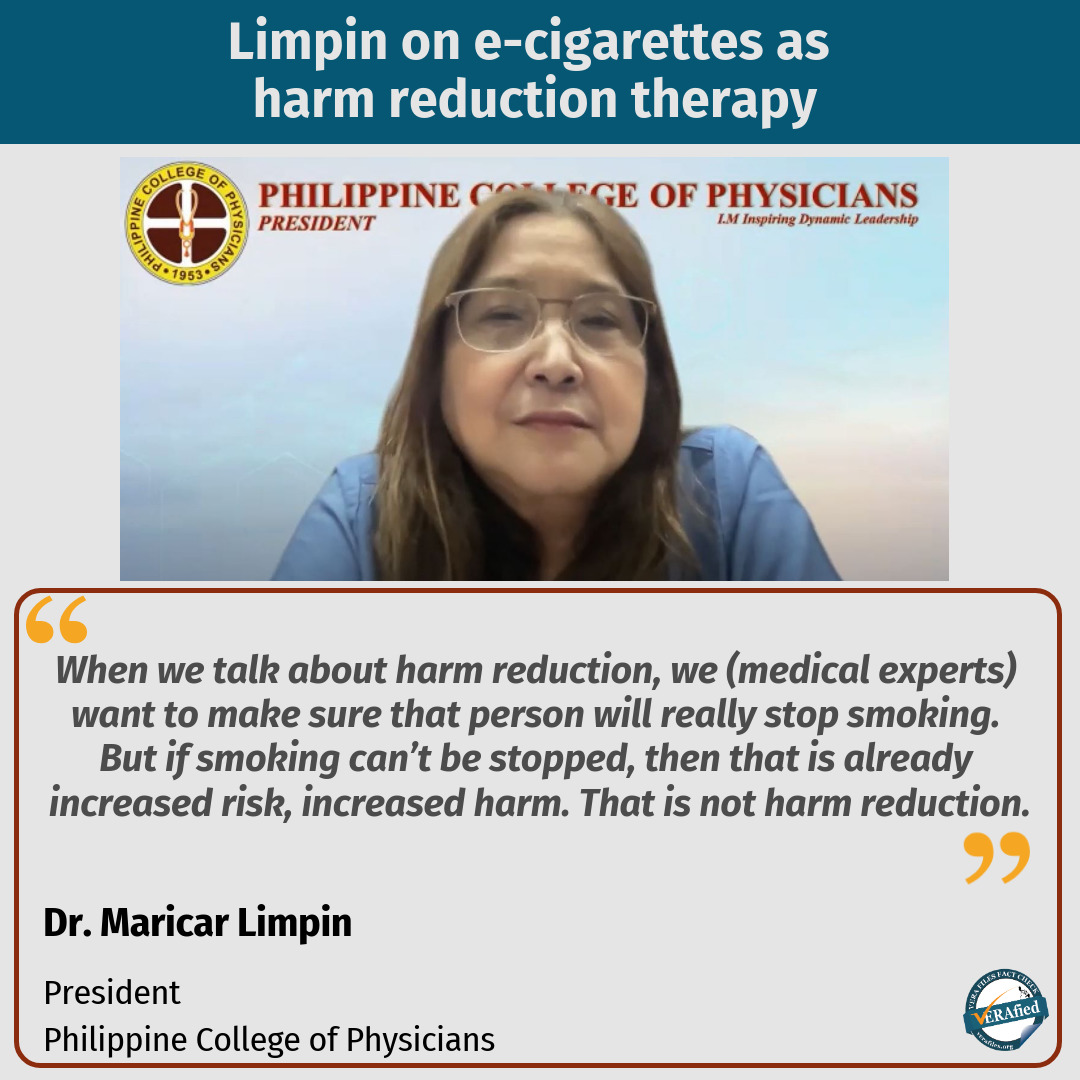
Limpin stresses that the young who have never smoked could be introduced to “something that has a potential for diseases,” adding that it could give way to more dual users or those who use both traditional cigarettes and vapes.
And that’s what happened to Josh, a senior high school student who had to stop his studies to focus on his online thrift shop business. Instead of totally quitting cigarette smoking after he tried vapes, he has become a dual user.
Introduced to vaping through tutorials and other posts on the internet, Josh and Mico believe that more young people could be attracted to e-cigarettes once lowering the age of access to 18 becomes the national standard.
(Read Vape bill eases restrictions on flavors, online advertising and Bill provides younger people easier access to smoke-free alternatives)
The Global Youth Tobacco Survey, conducted by the Epidemiology Bureau of the DOH, with support from health organizations, showed that while the number of cigarette smokers aged 13 to 15 years declined from 12% in 2015 to 10% in 2019, those using e-cigarettes increased from 11% to 14%.
“At 18 you just want to be a cool kid without knowing the risks of vaping,” said Mico, a senior high school student like Josh.
He said being able to buy vapes online either through Facebook groups that offer to buy and sell, or through e-commerce platforms like Shopee and Lazada, makes these products more attractive.
Regulating e-cigs, HTPs in QC and Pasig
Pasig CENRO’s Angeles acknowledges that monitoring and regulating online sales is difficult, compared to physical inspection of vape shops which the local government does.
“We do on-site inspection of vape shops,” he says, adding that authorities were busy with this task even in the middle of the pandemic. This is to ensure that shops are not selling to minors or that they are within the rules for advertising these products. “We regulate them and we’ve seen that the products are not an attraction,” he adds.
But even before these stores start operations, Angeles points out, his office already coordinates with the agency that issues business permits to make sure they are compliant.
Based on the data gathered by VERA Files, Quezon City has 73 registered vape shops while Pasig City has 21.
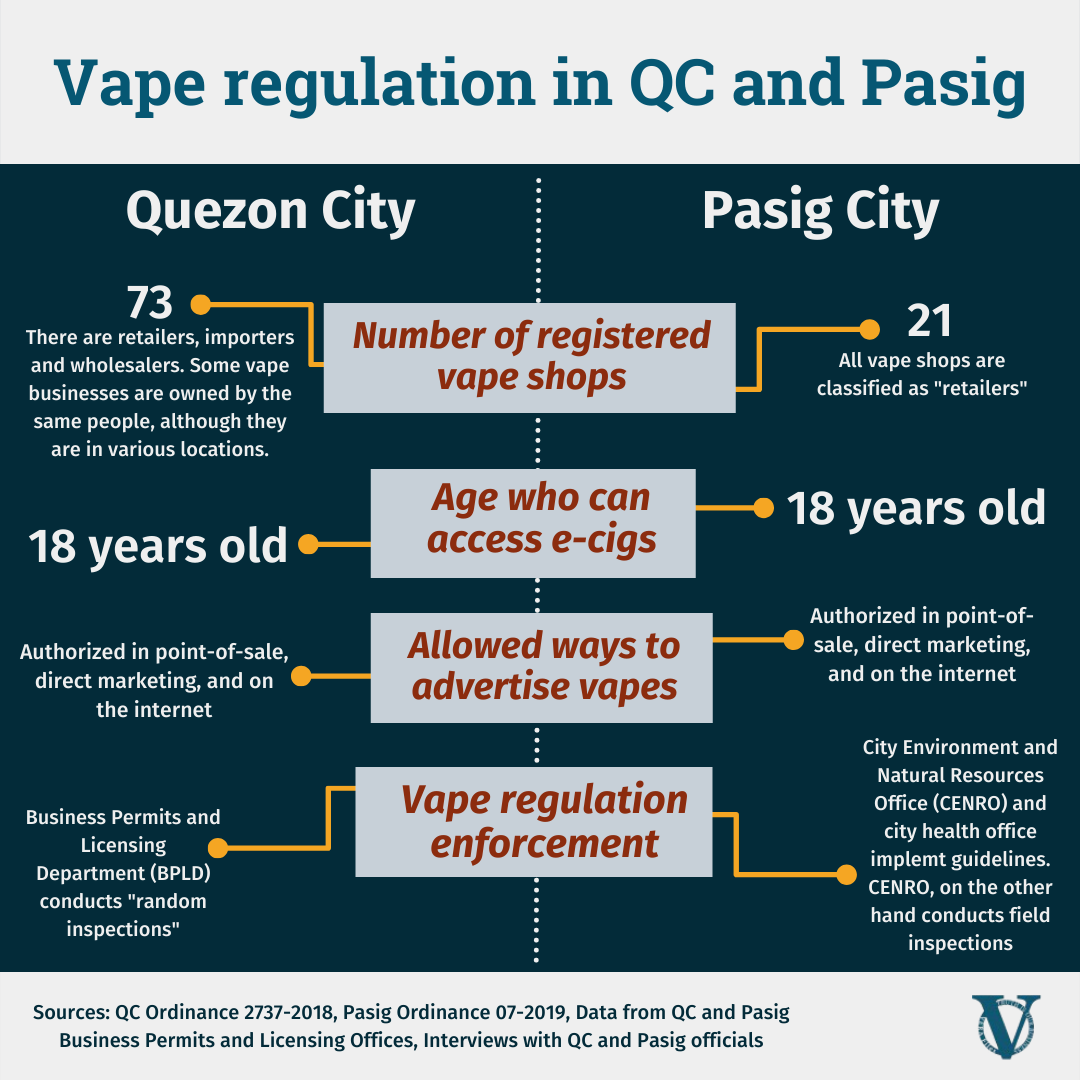 In QC, vape shops are classified as retailers, importers, or wholesalers. Some of the owners have more than one shop in different locations. The local government of Pasig has designated all vape shops as retailers only.
In QC, vape shops are classified as retailers, importers, or wholesalers. Some of the owners have more than one shop in different locations. The local government of Pasig has designated all vape shops as retailers only.
In both Quezon City and Pasig, advertisements of vapes and HTPs are allowed at point-of-sale, through direct marketing, and on the internet.
“Irreconcilable” interest
The issue of tobacco control in the promotion of public health gained more importance in the middle of the pandemic.
But for lawyer Sophia San Luis, tobacco control advocate and executive director of ImagineLaw, the conflict between the tobacco industry’s interests and the public health policy interest is “irreconcilable.”
She said the tobacco industry “produces and promotes” products such as e-cigarettes that could kill, while public health policies “seek to prevent deaths.”
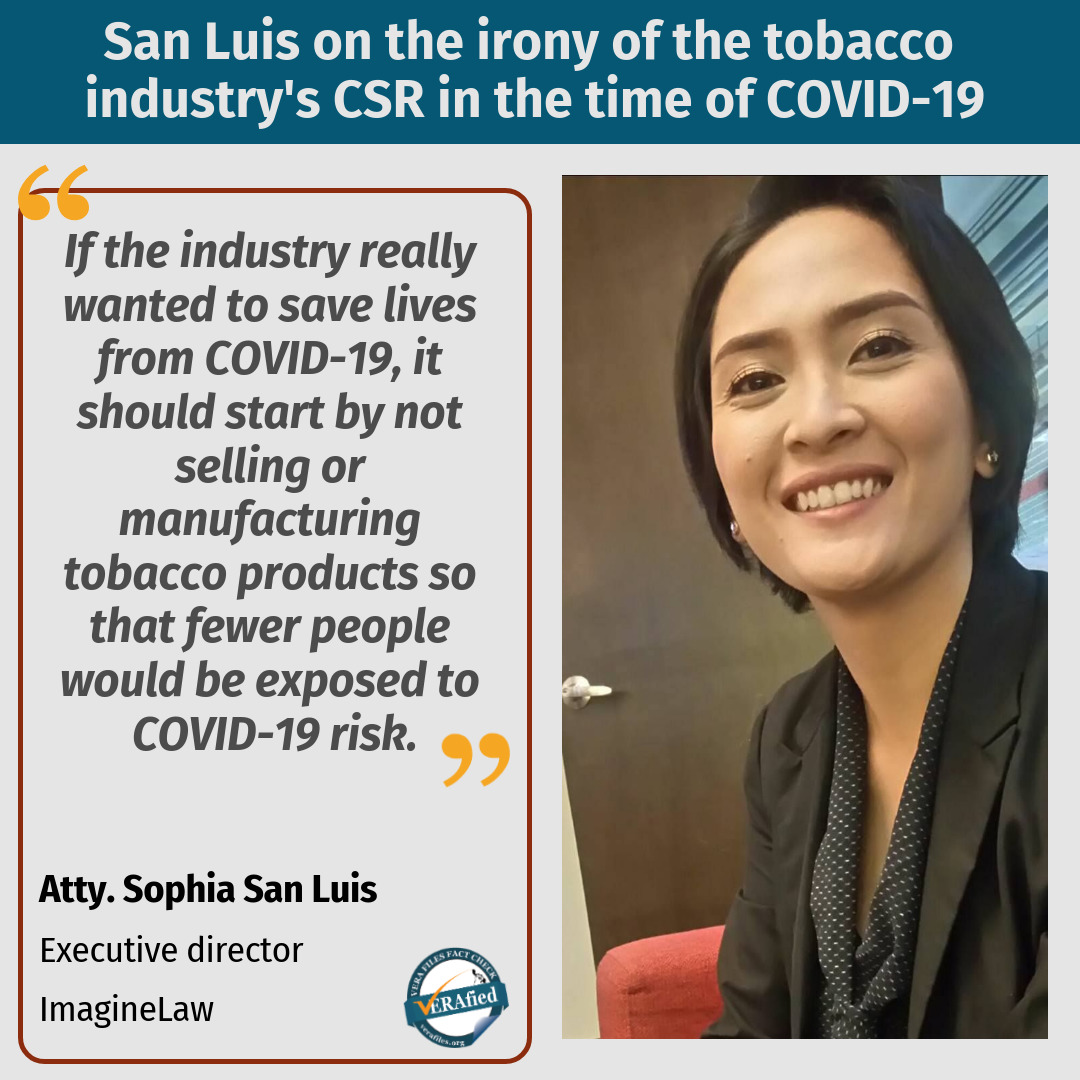 The tobacco industry, through its corporate social responsibility program, reached out to communities at the height of the COVID-19 health crisis, raising questions about the propriety of the assistance.
The tobacco industry, through its corporate social responsibility program, reached out to communities at the height of the COVID-19 health crisis, raising questions about the propriety of the assistance.
According to reports, Pasig City had accepted 15,000 COVID-19 vaccines from LT Group, Inc.(LTG), the holding company of business mogul Lucio Tan, chairman of Fortune Tobacco, the local partner of Philip Morris International.
Speaking in his personal capacity, Angeles told VERA Files that there was no malice in accepting the donations.
“If this is not really a direct part of the company that made the donation to help the local government and the people, which represents the tobacco company, I think there is no malice to give this issue much attention,” he says.
San Luis disagrees, saying the LT Group Inc. is associated with the tobacco industry.
“LTG is related to the tobacco industry as LTG is the holding company of PMFTC… it can be said that there was a violation of Section 3.3 of the JMC (Joint Memorandum Circular),” she says, referring to the DOH-Civil Service Commission issuance in 2010, which prohibits public officials and employees from interacting with the tobacco industry.
The QC LGU, on the other hand, has not violated the JMC, according to Villanueva.
“We are not aware of any violations. To my knowledge, no one from the tobacco industry came to us to offer sponsorship or donations of contributions,” he says.
Engelbert Apostol, head of QC Public Affairs and Information Services Department (PISD), confirms there were no donations from the tobacco companies.
San Luis says there should be no special considerations to this prohibition, especially while the country is battling a pandemic.
“By giving an exemption for COVID-19, we are in effect giving the tobacco industry an opportunity to cleanse its image, while it continues to produce deadly products. Sure, for the short term, it palliates the problems, but for the long term, we will be faced with even bigger, more expensive, public health problems,” she says.
Duque echoes this concern about the industry’s tactics, saying that the proposed vape legislation is a “Trojan Horse to this administration’s vowed policy to protect the health of the nation, especially our youth.”
“The bill will achieve the opposite of its intended purpose of strengthening tobacco industry regulation…It is contrary to public health goals, masquerading as a solution to a decades-long problem of tobacco use,” says the Health secretary.
This story was produced under the ‘Nagbabagang Kuwento Special Report: Tobacco Industry Interference Story Grants Program’ by Probe Media Foundation Inc. (PMFI) and Campaign for Tobacco Free for Tobacco Free Kids (CTFK). The views and opinions expressed in this piece are not necessarily those of PMFI and CTFK.
